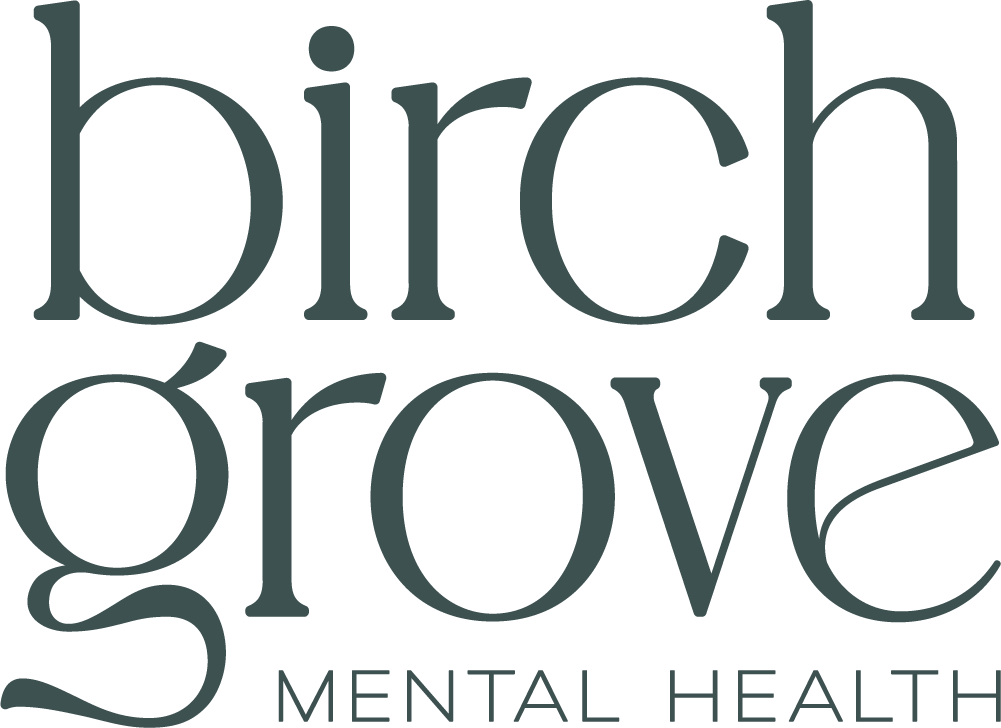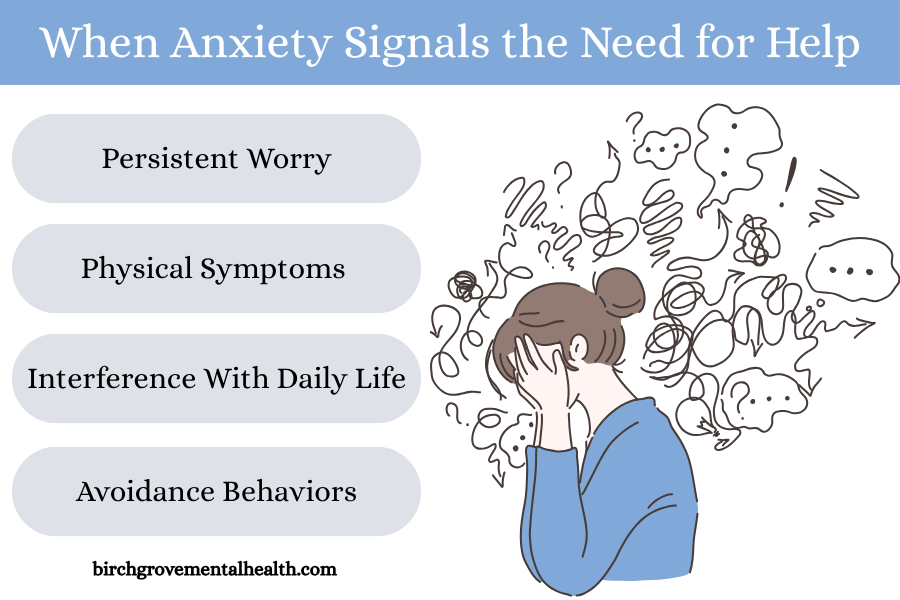Anxiety is a natural response to stress, and everyone experiences it from time to time. It can be a helpful signal, alerting us to danger or pushing us to prepare for challenges. However, when anxiety becomes overwhelming or persistent, it can interfere with daily life and impact our well-being. But how do you know when it’s time to seek help?
What Is Anxiety?
Anxiety is more than just occasional worry or fear. It can manifest as a persistent feeling of dread, uneasiness, or tension, often without a clear cause. It may also include physical symptoms like a racing heart, sweating, trembling, and difficulty sleeping or concentrating.
The intensity of your anxiety, big or small, is debilitating. It draws you away from the moment, or the day, and those with you feel it too. There is simply no way to swallow your anxiety and engage at your best.
Types of anxiety disorders include…
- Generalized Anxiety Disorder (GAD) – Characterized by excessive worry about everyday situations.
- Panic Disorder – Involves sudden episodes of intense fear or terror, often accompanied by physical symptoms.
- Social Anxiety Disorder – A fear of being judged or scrutinized in social situations.
In all of these disorders is a struggle to overcome the anxiety and just live. Left untreated or unmanaged, anxiety disorders affect relationships, work, and overall quality of life.
Signs It Might Be Time to Seek Help
While occasional anxiety is normal, recognizing when to seek help for anxiety is important. You should consider seeking treatment if you notice any of the following:
- Persistent Worry – Do you feel anxious most days over prolonged periods? This is no way to live.
- Physical Symptoms – Anxiety is accompanied by severe physical discomfort (mild to severe), such as headaches, stomachaches, or rapid heartbeats. It’s important not to rationalize these symptoms away as “this is how I am” or “…my body works”
- Interference with Daily Life – Your anxiety is making it hard to complete daily tasks, maintain relationships, or enjoy activities… in other words, if it’s sidelining you from life, it’s time to get treatment.
- Avoidance Behaviors – You find yourself avoiding situations, people, or activities either because you have anxiety or your anxiety may be triggered. Treatment will help you feel less fragile and go where you have been avoiding.
Self-Care Strategies
If your anxiety is mild or occasional, some self-care strategies can help you manage it effectively:
- Practice Relaxation Techniques – Deep breathing, mindfulness, and meditation can help reduce tension. When incorporated into your daily routine, the impact multiplies.
- Stay Active – Despite sounding like a gym commercial, regular exercise is a powerful way to lower stress and anxiety.
- Limit Stimulants – Reducing caffeine, alcohol, and sugar can help stabilize your mood… I cannot stress this one enough. Limiting those 3 in your life will change it!
- Sleep Well – I am passionate about all my patients getting a consistent sleep routine, aiming for 7–9 hours of sleep per night. If you optimize your sleep you start the day stronger than ever. Sleep rocks!
- Connect with Others – Isolation breeds mental health imbalance. We humans are inherently social creatures. Anxiety is an anti-social disorder that coerces you isolate. Just talking with friends or family can help reduce feelings of isolation.
When Professional Help Is Needed
When self-care strategies aren’t enough or your symptoms are worsening, it may be time to seek treatment. Don’t wait… it never hurts to talk to someone about what better could look like.
At Birch Grove Mental Health, we offer therapy services tailored to children, teens, adults, and elders. Whether you’re looking for telehealth options in Massachusetts, Rhode Island, or New Hampshire, or in-person support, we’re here to help you navigate your journey toward better mental health.


